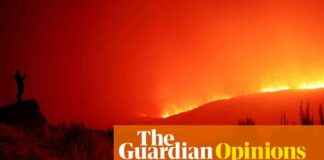Two Tales of One Heatwave
In 2024, as the world grappled with climate change, two contrasting tales emerged from the beaches of Gaza and Tel Aviv. Amidst the aftermath of the Israel-Gaza conflict, a devastating heatwave struck the region, claiming lives and highlighting the unequal impacts of climate change. In Gaza, refugees living in nylon tents faced the scorching heat without adequate protection, leading to tragic losses. Just north in Tel Aviv, beachgoers worried about the rising costs of air-conditioning and power cuts, showcasing the stark disparities in climate resilience.
The stories of these two communities underscore the urgent need for global action on climate change. While some enjoy the luxury of cooling systems, others struggle to survive in the face of extreme weather events. The human toll of climate change is evident in these heart-wrenching narratives, reminding us that the effects of environmental degradation are felt most acutely by the vulnerable.
Germany’s Climate Advocacy Dilemma
Germany’s role as a climate advocate was called into question as revelations surfaced about its funding tactics. Climate activists who criticized Israel’s actions in Gaza faced pressure from Germany, a key supporter of the Israeli government. The use of financial leverage to silence dissent raised concerns about the integrity of climate advocacy efforts and the influence of political interests on environmental discourse. As activists grappled with ethical dilemmas and financial repercussions, the incident shed light on the complex interplay between climate justice, political power, and financial support.
The story of Germany’s involvement in climate advocacy serves as a cautionary tale about the challenges of navigating political landscapes while upholding environmental principles. It prompts us to reflect on the ethical implications of funding sources in climate activism and the need for transparency and accountability in promoting sustainable practices.
Human Cost of Climate Injustice
In June, the annual Hajj pilgrimage in Mecca exposed the stark disparities in climate resilience among worshippers. As temperatures soared to dangerous levels, wealthy pilgrims enjoyed the comfort of air-conditioned accommodations while poorer pilgrims faced the risk of heat-related illnesses due to lack of proper shelter and cooling facilities. The tragic deaths of over 1,300 pilgrims, many of whom did not have official permits, highlighted the human cost of climate injustice and the urgent need for equitable climate adaptation measures.
The harrowing ordeal faced by pilgrims in Mecca underscores the inequalities perpetuated by climate change and the disproportionate burden borne by marginalized communities. It calls for a reevaluation of climate policies to ensure the protection of vulnerable populations and the promotion of social justice in environmental decision-making.














